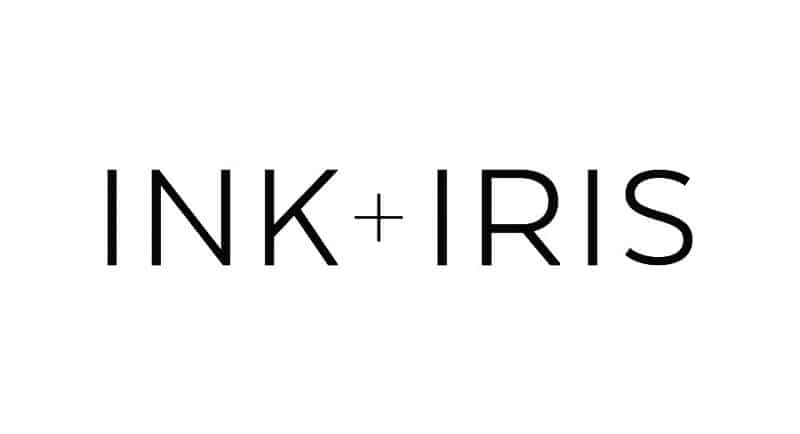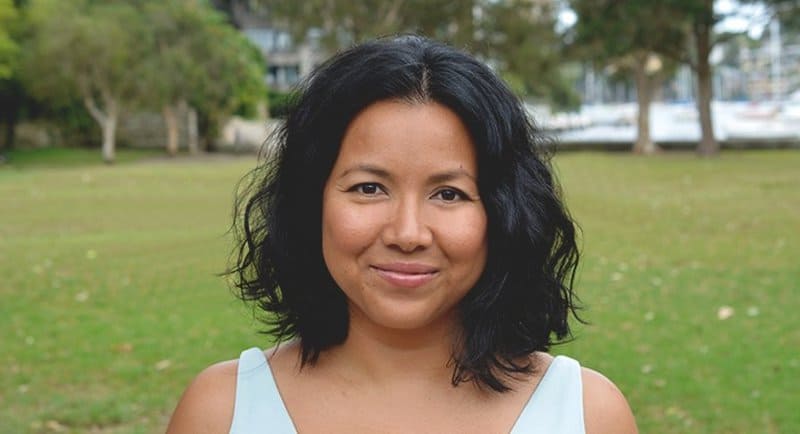Ink+Iris is one of 30 companies across Australia and New Zealand participating in the 4 Day Week – Global ANZ Pilot Program.
The agency is taking part in a six-month trial, with no loss of pay, to see if their business reaps the benefits of increased productivity from happier and healthier employees.
Co-founder Rachada Tepsatra spoke to Mediaweek about how they structure their four-day week (4DW) and what it means for their clients and the industry.
Why the 4DW is the way of the future
The global pandemic accelerated working from home for most office-based workers to a point where it is the norm.
Tepsatra said: “Looking back, it’s clear that old ways of thinking were rigid and not made for today’s brave new world. We believe it’s the same with the 4 Day Week.”
Tepsatra explained society is due for an update after moving from a 6-day week to a 5-day over the past 100 years.
“We believe that in the not-so-distant-future, we’ll be looking back at the 5 Day Week scratching our heads, wondering why we accepted it as the status quo,” she said.
Tepsatra noted that challenging the norms and striving for better and more innovative ways of doing things drives them to bring change. She said: “We believe that we can achieve greater productivity, performance, well-being and creativity from our team and for our clients by transitioning to a 4 Day Week.”
The 4 Day Week movement has also been gaining momentum since 2015 after Iceland transitioned to this model with positive results. Since then, countries such as Sweden, Canada, the US, UK and Ireland have done their trials and jumped on board.
Tepsatra added that 4DW is only not suitable for small businesses and start-ups. Closer to home, big corporations, such as Microsoft Japan, Unilever NZ, and Unilever Australia, have seen and continue to see the positive impact of 4DW.
Tepsatra said: “4 Day Week trial studies show that companies see up to 40% increase in overall productivity, up to 40% greater team engagement, lower attrition rates, better work/life balance, greater job satisfaction, improved well-being, lower stress levels and less sick leave taken.
“In short, people can not only do their work in 4 days, but they can do it better. The evidence is overwhelming, and the decision for us to embrace the 4DW was an easy one,” she added.
What does 4DW look like at Ink+Iris
Individual companies can determine how their 4DW is structured, either tag team days off or reducing working hours while staying open five days a week.
“For us at Ink+Iris, we close shop on a Friday, gifting our team a 3-day weekend every week,” Tepsatra said.
“This is also not about compressing 40 hours into four days. Instead, in line with 4 Day Week Global’s guidelines, we have adopted the 100:80:100 model. This means 100% of the pay, for 80% of the hours, with the expectation of 100% of the output. Our team now works a 32-hour work week while maintaining the same salary,” she explained.
Tepsatra said that working four days meant they had to re-evaluate their tools, processes and everyday language so that productivity is front of mind for their people.
“By empowering our team to “own their days”, we’ve flipped the ownership of productivity onto them and leaned hard into new productivity hacks, tools and systems,” she said.
Tepsatra said that their people are their greatest asset and that the 4 Day Week is something they enthusiastically advocate for.
“With an extra day for themselves to re-energise and recharge, we’ve already seen early positive results. Our people are more engaged, more inspired and more productive,” she said.
“The team have made it clear this is something they would like to make permanent after the trial period, which is why the motivation coming from each team member themselves is what will drive success,” she added.

Rachada Tepsatra with Ink + Iris co-founder Jo Wilson
What does 4DW means for Ink+Iris’ clients
Tepsatra noted that for Ink+Iris’ 4DW trial to be successful, the agency must maintain its service and quality standards.
The agency is committed to delivering the same high-quality output, creativity and turnaround for their clients. Since starting the trial in August, Ink+Iris has consciously embraced a concentration on production rather than input.
“This, naturally, has a knock-on effect on our clients, where we focus on the output and value we deliver for them rather than on time spent,” she said.
Tepsatra noted that as a presentation creative agency, they had seen immediate benefits in their team’s creativity. She said: “By gifting our team long weekends every weekend, we come back on a Monday renewed and re-energised, banishing fatigue from the past week and refreshing tired brains. That’s particularly important in an industry where we use both sides of the brain equally.”
Tepsatra added that embarking on a four-day week gives them a competitive edge in attracting top talent in an increasingly tight labour market. She said: “For our clients, this means more talented and happier people creating better work for them.”
While it is still early for client feedback, Tepsatra noted that the response so far has been that they are inspired, want to learn more, and hope their organisations might try the same.
What could this mean for our industry?
Tepsatra noted that 4DW trials are significantly underrepresented in the media and advertising community, particularly in the UK and ANZ.
“Companies need to see the 4 Day Week as a radical opportunity to deliver triple bottom impact – people, planet and profit – across our industry as well,” she said.
Looking at the impact on people, Tepsatra noted the “work hard, play hard” mentality is an outdated norm, with burnout and poor mental health as common outcomes.
“Employee expectations are higher than ever to be looked after, and if our industry doesn’t catch up, we’ll soon be on the wrong side of history,” she said.
While trivial perks such as free drinks and yoga classes can help, it does not resolve employee disengagement the way a 4DW can create lasting and meaningful change, according to Tepsatra.
Tepsatra said: “78% of employees who work a four-day week report feeling happier, less stressed and less burnt out. They report being better able to perform in their jobs and relax on their time off.
“The four-day week also has cross-societal benefits such as improving gender equality. It encourages a better distribution of domestic responsibilities. It helps remove barriers to women remaining in the job market, taking on leadership roles and pursuing training opportunities.”
A 4DW also reduces environmental impact by reducing emissions from commuting, in addition to people working from home. It also means computers are shut for a day extra in the week, and digital emissions are lowered.
“In fact, 4 Day Week can help to lower the carbon footprint of the entire organisation,” she added.

A 4DW also improves profit, according to Tepsatra. She noted an independently tracked trial showed that companies could increase productivity, team engagement, greater job satisfaction, improved well-being, lower stress levels and less sick leave taken.
“This equates to lower attrition rates and money saved, not to mention the cost-benefit of keeping experienced people for the long term in the same company,” she said.
Tepsatra also noted that under the 4DW, remuneration packages are not just about the dollar value.
“As more and more people value time as the ultimate finite resource, 4DW is a cost-effective perk to negotiate into remuneration packages, helping people craft a career and life that they love,” she said.
Lessons to learn and share on the 4DW journey
Tepsatra noted that they welcome challenges and will continue to recalibrate and improve on Ink+Iris’ 4DW journey.
Tepsatra said: “We hope we’ll reap the same benefits we’ve seen from trials in other countries – and grow as a productive, value-driven and people-centric organisation.
“As proud 4 Day Week pioneers, we look forward to sharing more of our journey and findings as we charge forward into this new territory,” Tepsatra added.
–
Top image: Rachada Tepsatra
